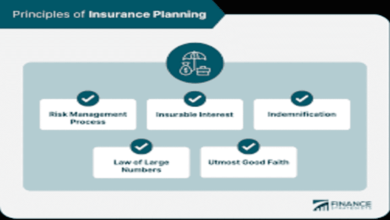Home Insurance

Home Insurance
Your home is more than just four walls; it’s your sanctuary, your haven. Protecting it against unforeseen events is paramount. In this guide, we delve deep into the world of home insurance, shedding light on coverage options, cost factors, and essential considerations. Whether you’re a homeowner or a renter, understanding home insurance is vital for safeguarding your dwelling and possessions. Let’s embark on this journey to secure your peace of mind.
Understanding Home Insurance
Exploring Coverage Options
Home insurance comes in various forms, each offering distinct coverage. From dwelling coverage protecting the structure itself to personal property coverage encompassing belongings within, understanding your policy’s components is crucial. Delve into the nuances of coverage to ensure comprehensive protection for your home and possessions.
Home insurance policies typically include:
- Dwelling Coverage: Safeguards the structure of your home against damages caused by covered perils.
- Personal Property Coverage: Protects your belongings, such as furniture, electronics, and clothing, from loss or damage.
- Liability Coverage: Offers financial protection against lawsuits for property damage or bodily injury occurring on your property.
- Additional Living Expenses (ALE) Coverage: Covers expenses incurred if your home becomes uninhabitable due to covered perils, such as temporary accommodation costs.
Cost Factors to Consider
Understanding the factors influencing home insurance premiums empowers you to make informed decisions. Several elements impact the cost of coverage, including:
- Location: The geographical area of your home influences the risk of natural disasters or theft, impacting insurance rates.
- Home’s Age and Construction: Older homes or those constructed with high-risk materials may result in higher premiums.
- Coverage Limits and Deductibles: Opting for higher coverage limits or lower deductibles may increase premiums but provide greater protection.
- Security Features: Installing security systems, smoke detectors, and deadbolts may qualify you for discounts on your insurance premiums.
- Claim History: A history of frequent claims may lead to higher premiums, highlighting the importance of responsible claims management.
Navigating Policy Options
When choosing a home insurance policy, consider your specific needs and preferences. Compare policies from multiple insurers, assessing coverage, deductibles, and premiums. Ensure the policy aligns with your requirements and offers adequate protection for your home and belongings. Remember, the cheapest option may not always provide sufficient coverage, emphasizing the importance of striking a balance between cost and protection.
Optimizing Your Coverage
Regularly review and update your home insurance policy to reflect changes in your circumstances. Notify your insurer of renovations, acquisitions, or significant life events to ensure adequate coverage. Additionally, consider bundling your home and auto insurance policies with the same provider to unlock potential discounts. By optimizing your coverage, you can secure comprehensive protection for your home and enjoy peace of mind.
Commonly Asked Questions about Home Insurance
- What factors determine the cost of home insurance?
- Several factors influence home insurance premiums, including the location of your home, its age and construction, coverage limits and deductibles, security features, and your claim history.
- What does home insurance typically cover?
- Home insurance policies typically cover dwelling protection, personal property coverage, liability protection, and additional living expenses (ALE) coverage.
- How can I lower my insurance premiums?
- You can lower your insurance premiums by installing security features, maintaining a claims-free history, opting for higher deductibles, and comparing quotes from multiple insurers.
- What should I consider when purchasing a insurance policy?
- When purchasing a insurance policy, consider factors such as coverage options, deductibles, premiums, insurer reputation, and customer service quality.
- Is flood insurance included in standard insurance policies?
- No, flood insurance is typically not included in standard insurance policies. However, you can purchase separate flood insurance coverage to protect your against flood-related damages.
- What steps should I take after experiencing a loss or damage to my home?
- After experiencing a loss or damage to your promptly contact your insurance provider to file a claim. Document the damage with photographs or videos and cooperate fully with the claims adjuster to expedite the process.
Conclusion
insurance serves as a crucial safeguard, offering protection and peace of mind to homeowners and renters alike. By understanding coverage options, cost factors, and policy considerations, you can make informed decisions to ensure comprehensive protection for your dwelling and possessions. Remember to regularly review and update your policy to reflect changes in your circumstances and optimize your coverage accordingly. With the right insurance coverage in place, you can rest assured knowing that your haven is protected against life’s uncertainties.
Helpful Resources





